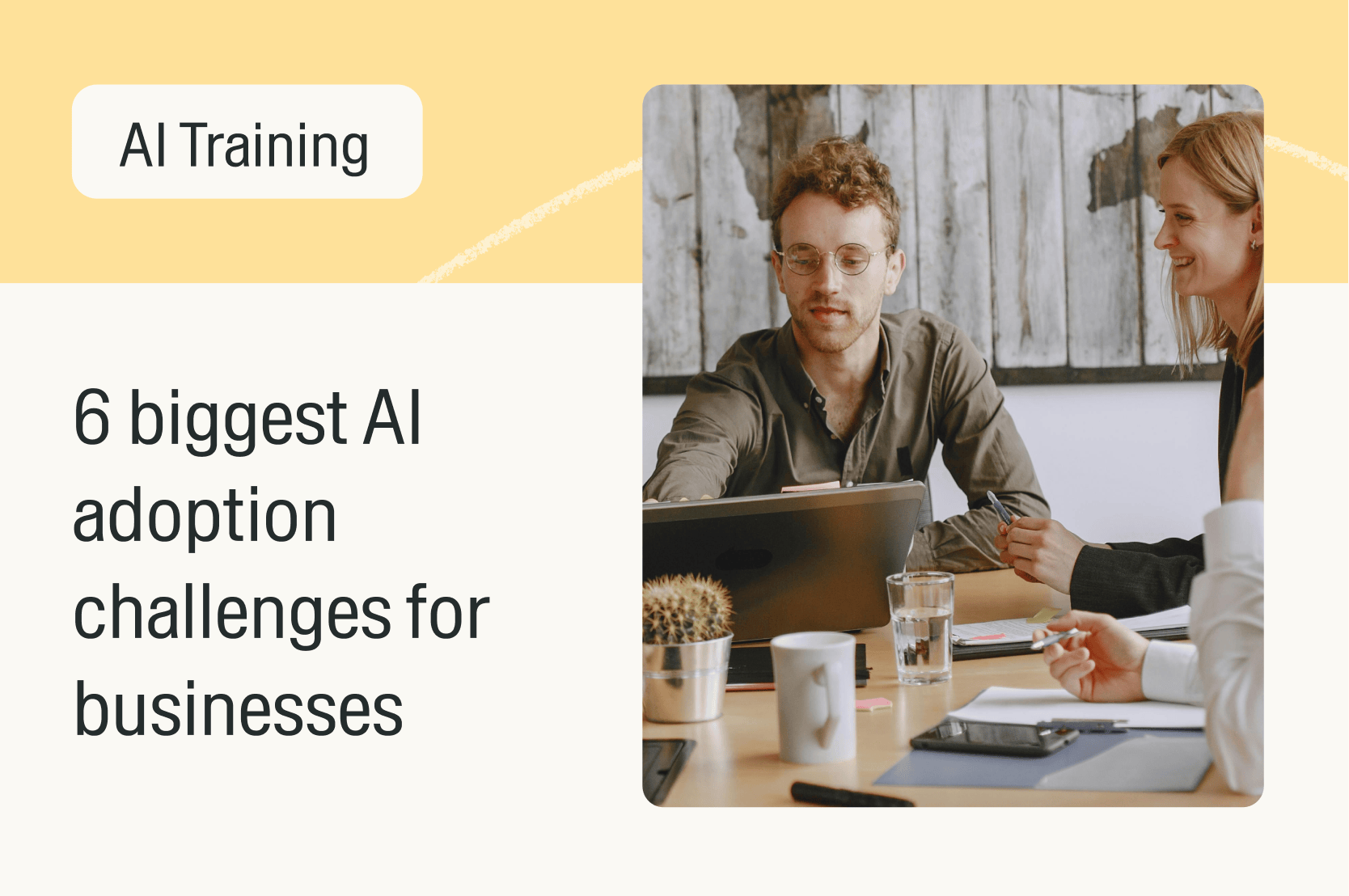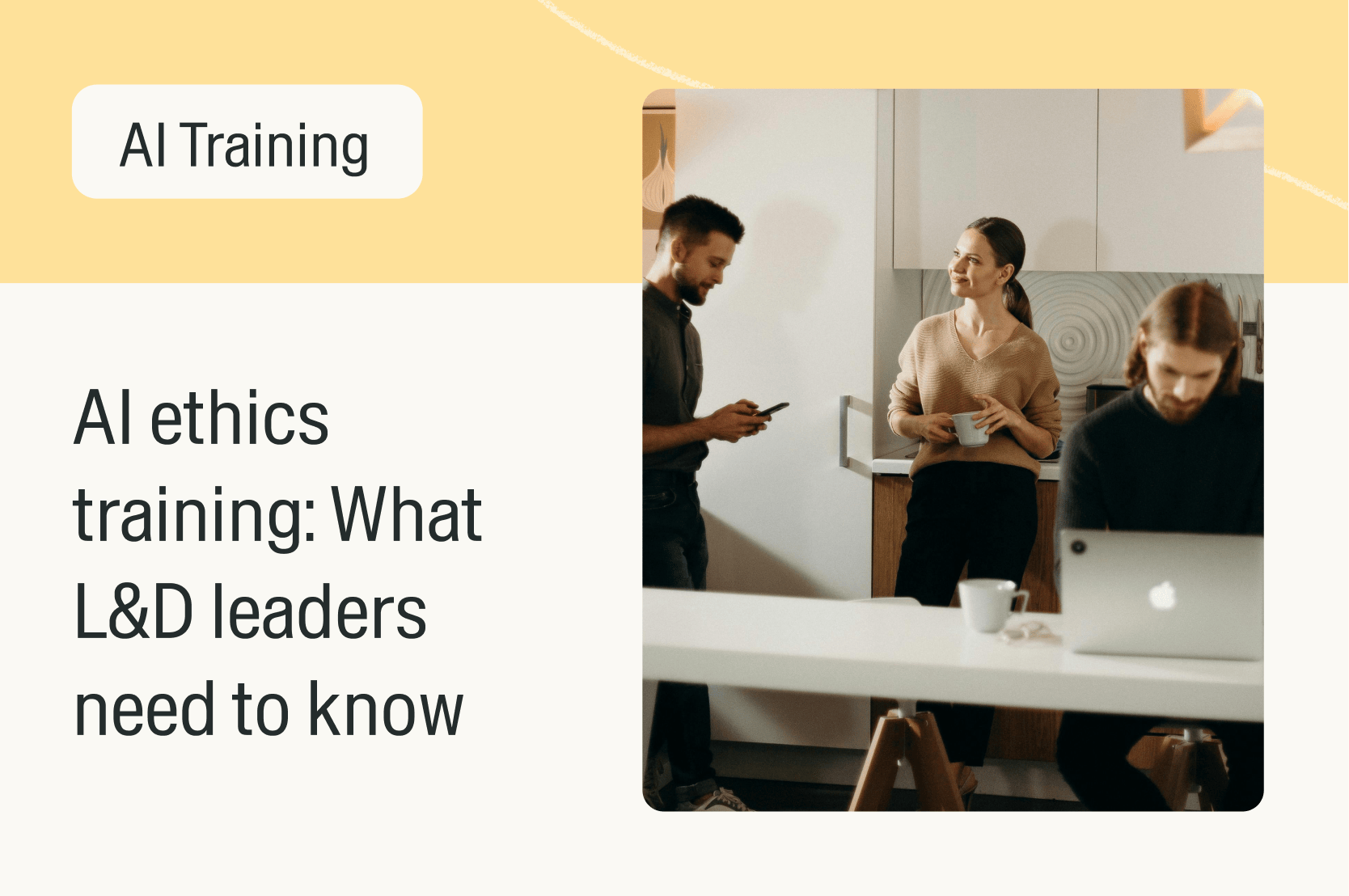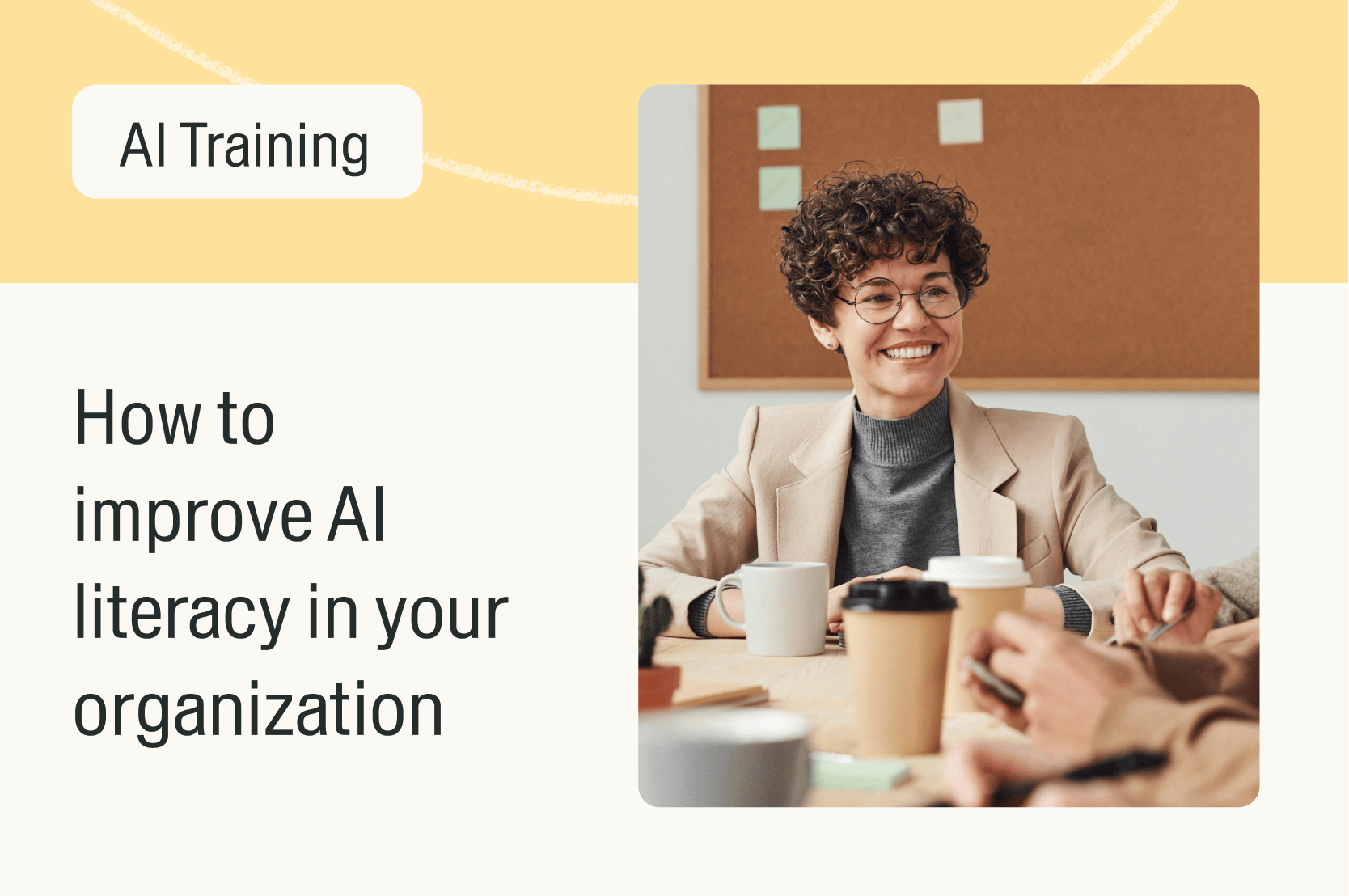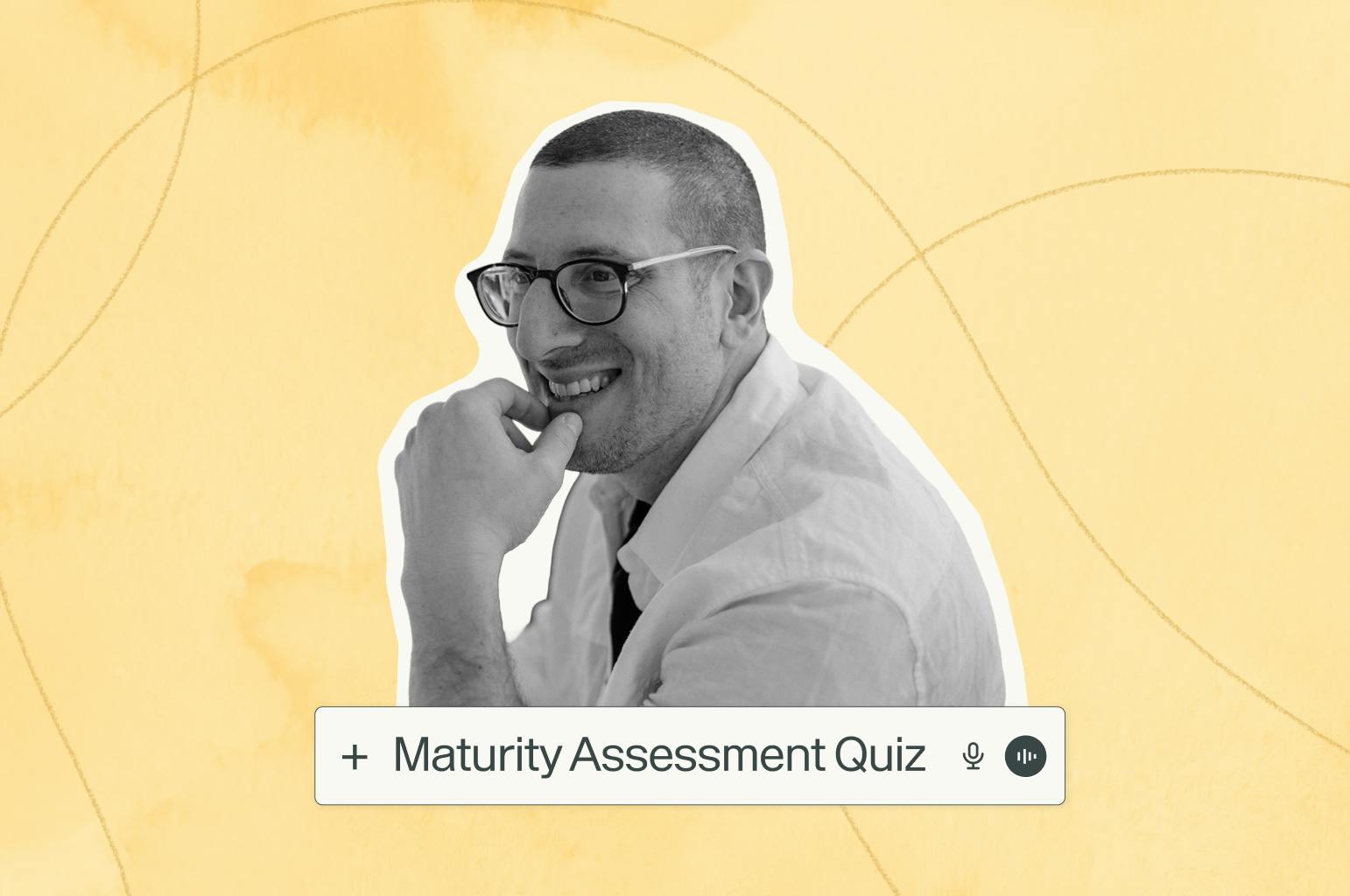Lifelong learning for employee engagement

In a live session at the 2024 CIPD Festival of Work 2024 CIPD Festival of Work, product experts Holger Seim from Go1, and Andrew Roberts from Zensai, shared powerful insights on the role of continuous learning in driving employee engagement and long-term business results.
Their message was clear: When organizations invest in learning that aligns with both individual growth and company goals, employees are more likely to stay, contribute, and thrive.
In this article, we’ll walk through the key takeaways from their conversation—and share the full recording so you can explore every insight for yourself.
Leadership drives engagement and retention
Employees are more likely to stay with a company that invests in their learning journey and aligns business goals with people's growth.
Holger shared, "What we do know is that organizations that focus on this area in terms of purpose — social responsibility — with their employees, do see higher levels of both innovation and retention within the workforce."
Andrew added, "It's really important that we're providing employees with this opportunity to grow within the organization but at the same time benefit the organization."
They went on to highlight the importance of creating a culture of continuous learning within the organization, providing access to various learning opportunities, such as workshops, courses, and mentorship programs. Incorporating technology and digital tools into all learning and development initiatives to provide more flexibility and accessibility for employees. All of this work starts at the top with leaders, who play a pivotal role in promoting, actioning, and supporting lifelong learning, to set the tone for all employees.
Promoting a culture of learning
Leaders play a crucial role in promoting a culture of lifelong learning within an organization and should set the strategic vision for learning and development across teams, serve as role models, and be accountable for instilling a culture of learning.
Leaders should actively participate in the learning process themselves, modeling a commitment to continuous learning and growth. By prioritizing learning and development at the highest level of the organization, there's a clear message to employees that learning is valued and essential for the success of the company.
Roberts explained, "It's no good setting [up] your Learning and Development journey in a silo in L&D or in HR. It needs to be brought in at the C-level. That sets the Strategic vision." This approach leads to a culture of learning and innovation, where employees feel empowered to take risks and constantly improve their skills and knowledge.
In addition to setting the tone and direction for learning, leaders should ensure that resources are allocated towards learning initiatives and that employees have access to various learning opportunities. This includes providing time and space for learning, investing in technology and tools to facilitate learning, and creating a supportive and safe environment for employees to experiment and learn from their mistakes.
By prioritizing and actively promoting a culture of learning, leaders can empower their employees to continuously develop their skills and knowledge, leading to improved performance, innovation, and overall organizational success.
Leaders should actively participate in the learning process themselves, modeling a commitment to continuous learning and growth.
A blended approach to learning
Holger and Andy went on to highlight the importance of a blended approach to learning, combining formal and informal learning opportunities, for a unique learning journey that caters to individual preferences.
As Holger explained, "We talked about those different learning preferences... you don't need a piece of software to do this in a small organization so you can start simple and you can look at the opportunities and make sure that this is reflected process to see how people prefer to learn."
Andrew added that "[Zensai has] really focused on making sure that our tools are available to frontline workers and desk-based workers. Creating access to not just compliance but also educational resources as wide as possible." Providing access to learning resources for all types of workers, regardless of their job role or location, promotes a culture of continuous learning and development within the organization.
By incorporating both formal training programs and informal learning opportunities, employees can gain knowledge and skills in a variety of ways that best suit their individual needs and preferences. This not only enhances their learning experience but leads to more effective and efficient learning outcomes.
Using skills mapping and assessments in L&D
Skills mapping and assessments play a vital role in learning programs, setting the groundwork and keeping learning personalized and relevant. These tools enable organizations to identify current competencies and areas for development. Technologies, including AI, have made it possible to streamline this process and create personalized learning journeys at scale and speed unlike ever before. Zensai and Go1 are both at the forefront of AI in learning and development.
Roberts stated, "Managers need tools to be able to support both the baselining and also the targeting of skills within an employee's journey... Skills and AI are now really powering the ability to both build your own skills taxonomies within the organization, [while using] AI to identify core competencies that people may have and some of that future state as well."
This approach to technology allows for a more focused and efficient learning experience, as individuals can pinpoint specific skills that are necessary for their role and career progression, and focus on developing them at their own cadence.
Additionally, skills mapping and assessments allow L&D leaders and teams to track the progress of their employees' learning to ensure that the right skills are being developed to meet future business needs. With the continuous evolution of technology, skills mapping and assessments will continue to play a crucial role in L&D, helping organizations stay ahead in an ever-changing business landscape.
Listen to the full conversation with Holger and Andy
This session at CIPD's Festival of Work highlighted the power of lifelong learning in unlocking human potential and fueling personal and professional fulfillment. Holger and Andy discussed the importance of fostering a learning culture that keeps employees engaged and motivated to achieve their full potential. Listen in to see how you can empower your team to reach success!
Explore the Go1 course library to find the right training for your team
Related Articles

The 6 biggest AI adoption challenges for businesses in 2026 (and how to overcome them)

AI ethics training in 2026: What L&D leaders need to know

How to improve AI literacy in your organization in 2026

Application Guide: How to use the Go1 AI for L&D Maturity Assessment to assess our workforce AI capability

Train smarter, spend less
Train smarter,spend less
Connect with a Go1 expert to explore the best training options for your organization—no pressure, just solutions that work.